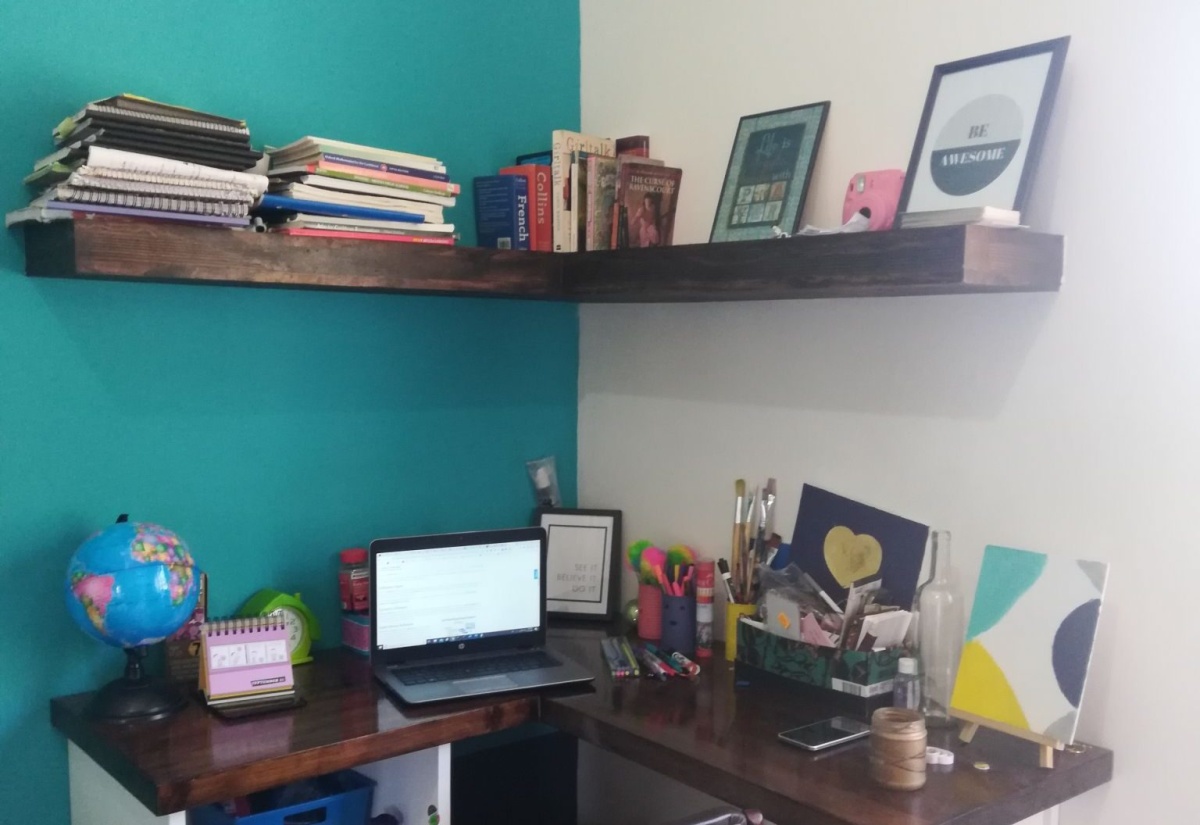Parent Offers Tips on Successful Homeschooling
By: , September 30, 2020The Full Story
In 2012, Shauna-Gay Case and her husband made the decision to homeschool their children.
Seven years later, in September 2019, the two older children, at ages 11 and 13, were re-enrolled in the formal school system, while the youngest, at five years old, continued to be tutored at home.
As fate would have it, in March 2020, schools were ordered closed as Jamaica and the rest of the world grappled with the coronavirus (COVID-19) pandemic, and since then the three children have been back being homeschooled.
Simply put, homeschooling involves children being taught at home instead of being sent to a traditional public or private school.
The Ministry of Education, Youth and Information is advising parents and guardians who intend to homeschool their children for the 2020/2021 academic year to contact the Ministry before pulling their children from the formal school system.
Parents who desire this alternative option must get authorisation by sending a formal letter to the Ministry, requesting that registration at the school be retained and attendance credited for the period of homeschooling
This will ensure that students can be reintegrated, should the decision be taken at a later stage by the parent to re-engage in the public school system.
During an interview with JIS News recently, Mrs. Case said the initial decision to homeschool her children was because she and her husband wanted to be a part of the children’s learning experience.
She says that as parents, they wanted to be the biggest influence in their children’s life and ensure that they enjoy learning.
“From my own experience, I grew up with a lot of pressure to learn, and so I attached my identity to performance. I am not sure I really learnt much, and even though I was able to get As, after the exams I usually did not remember what I learnt. The decision to homeschool also comes from anxiety,” she adds.
For parents or guardians contemplating homeschooling as the country experiences community spread of COVID-19, Mrs. Case is offering some tips that have worked for her family.
She is advising parents to “evaluate what works best for the children and not to be hard and fast”.
She points out that while structure is important for effective homeschooling it does not need to be rigid or mirror the formal school system.
Mrs. Case advises further that if the child is struggling with or having an aversion to a particular topic “do not push it that day, as learning needs to be fun. They need to enjoy the process of learning”.
She says parents may choose subjects such as mathematics, English and science as compulsory, then allow the child to choose electives. “In doing this, you get more out of the child because he or she is doing a subject that they enjoy,” she points out.
Reading aloud to your child, even the older ones, helps a lot, Mrs. Case tells JIS News.
“I used to think reading aloud was for the younger ones only; however, I discovered that reading to the older ones gives them confidence. My 14-year-old still loves when we sit down and read together. It helps to develop their reading and writing skills,” she says.
Mrs. Case notes that with homeschooling, parents have to be completely engaged in the child’s learning process, especially when electronic devices are involved.
“You don’t have to be consistently looking over the child’s shoulder, but do pass by every now and then to see what they are doing,” she suggests.
Mrs. Case points out that children are easily distracted, and with the use of smart devices, distraction is just a click away without the teacher’s knowledge.
She, however, points out that safeguards must be put in place to track what the child is doing online.
“Parents should do their research to ensure that they have the most effective cybersecurity system, for example, one that limits the amount of time spent online and also limits the sites the child may visit. It is very important to have this level of monitoring because even if the child is trustworthy, undesirable information will always pop up and they will be tempted to click on them,” she says.
Another important aspect of homeschooling is the physical space.
Mrs. Case says the environment must be comfortable and quiet. She says that a desk and chair should be set up for schoolwork, and children must not be encouraged to lounge in a couch. In addition, the space must be ergonomic, allowing for efficiency and comfort, as the children will be there for extended periods.
“I also recommend creating an ambience by playing ‘study music’. This triggers something in their brain so they know it is school time. It calms them and sets a mood for learning”, Mrs. Case adds.
She urges parents to find fun ways to engage their homeschoolers. “During bath time is a golden opportunity for learning, especially with the younger ones. It is a good time to teach them about body parts, maths (simple sums), songs, science,” she points out.
“Also, getting them involved in cooking is one way of making learning practical and fun. For example, when I taught the kids multiplication and division, I used pizza and we baked cookies. I make sure they understood the concept first practically. Playing dominoes can also be used to teach maths concepts,” she informs.
Mrs. Case says that study breaks are also important.
She suggests that for children aged four to 10 years old, they should not be engaged in any one subject for more than 20 to 25 minutes at a time. “When it comes to actual teaching, break it up as much as possible. If after 15 minutes their body language changes, for example, they may start yawning, it means they are no longer learning,” she notes.
For further information on homeschooling persons may visit Homeschool Jamaica at https://www.facebook.com/groups/homeschooljamaica/.


